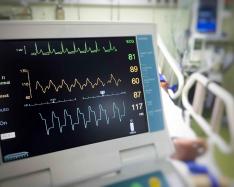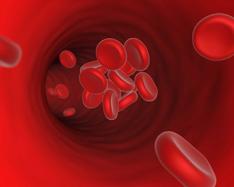Complications common to patients with MPN and faculty members who specialize in them.
Patients with myeloproliferative neoplasms (MPNs) sometimes experience abnormal bleeding. The bleeding can be minor and self-limiting but, rarely, bleeding can be very serious. Abnormal bleeding can show up as easy bruising, nosebleeds, or heavy period. Bleeding of the stomach or elsewhere in the digestive system or into an organ can be a medical emergency. Usually, bleeding is associated with very low platelet counts in patients with advanced myelofibrosis. Paradoxically, a very high platelet c...
Patients with myeloproliferative neoplasms can experience cardiovascular complications that are thought to be at least partially linked to the MPN. Serious or bothersome symptoms should always be reported to your medical team. The most well recognized cardiovascular complications are due to the risk of abnormal blood clots causing heart attack, stroke, or pulmonary embolism. These medical emergencies must be treated right away in the hospital.Some cardiovascular complications of MPNs are less we...
MPN patients may have higher risk of depression and other mood disorders. The medical cause for this association between MPNs and mood disorders is not currently known.Common symptoms of depression can include fatigue, changes in eating or sleeping habits, feelings of worthlessness or hopelessness, difficulty concentrating and/or loss of interest in activities or hobbies that were once enjoyable. It is important for patients to tell their doctors if they are experiencing symptoms of depression,...
The gastrointestinal (GI) tract is another name for the digestive system that processes food and nutrients and disposes of waste. GI complaints are common among patients with MPNs. The causes of these symptoms are not well understood but most are mild and self-limited. Drugs used to treat MPNs, as well as the disease itself, can cause GI symptoms. Common GI complications related to myeloproliferative neoplasms include irregular bowel movements, intermittent constipation and/or diarrhea, abdomina...
With appropriate management, most pregnant patients with MPNs deliver healthy babies. However, expectant mothers with MPNs may be at increased risks of miscarriage or other complications. These risks can be higher in patients with a prior history of pregnancy complications, blood clots, and/or bleeding associated with their MPN. Pregnant patients require more frequent monitoring and may require therapy to minimize risk of complications.
Pruritus is the medical term for skin itching. Some patients with MPNs have skin itching that can be intermittent and predictable, intermittent and unpredictable, or even constant. The most common predictable trigger for itching is exposure to warm or hot water during showering or bathing. Some drugs used in the treatment of CML (e.g., imatinib, nilotinib, dasatinib) can cause skin itching, particularly when therapy is first started or changed. The medical cause for the itching in patients with...
Sexual dysfunction is difficulty experienced during any stage of normal sexual activity. Sexuality-related symptoms are thought to be increased in patients with MPNs yet little is known of the cause or treatment of these problems in patients with MPNs. Investigations are underway at Weill Cornell Medicine in an effort to learn more about the medical causes for sexual dysfunction in patients with MPNs. The below video outlines more information on what our physicians are doing to find new options...
Patients with MPNs such as polycythemia vera (PV), essential thrombocythemia (ET) and myelofibrosis (MF) are at increased risk for developing abnormal blood clots. MPN patients have an increased risk for both venous thrombosis (such as deep vein thrombosis, DVT, and pulmonary embolism or abdominal vein thrombosis) and arterial thrombosis (such as stroke or heart attack). The risk for thrombosis is not the same for all patients and is likely due to more than one factor. The factors linked to the...









